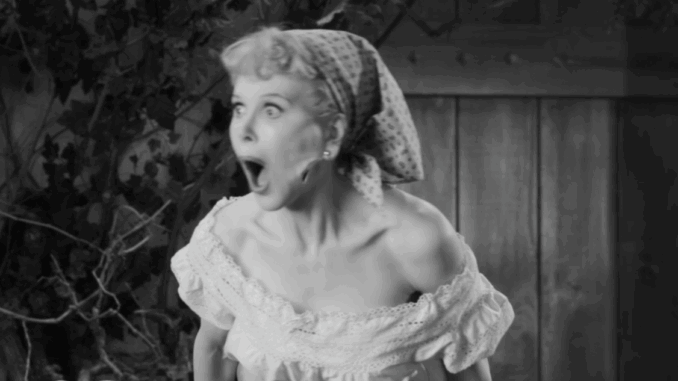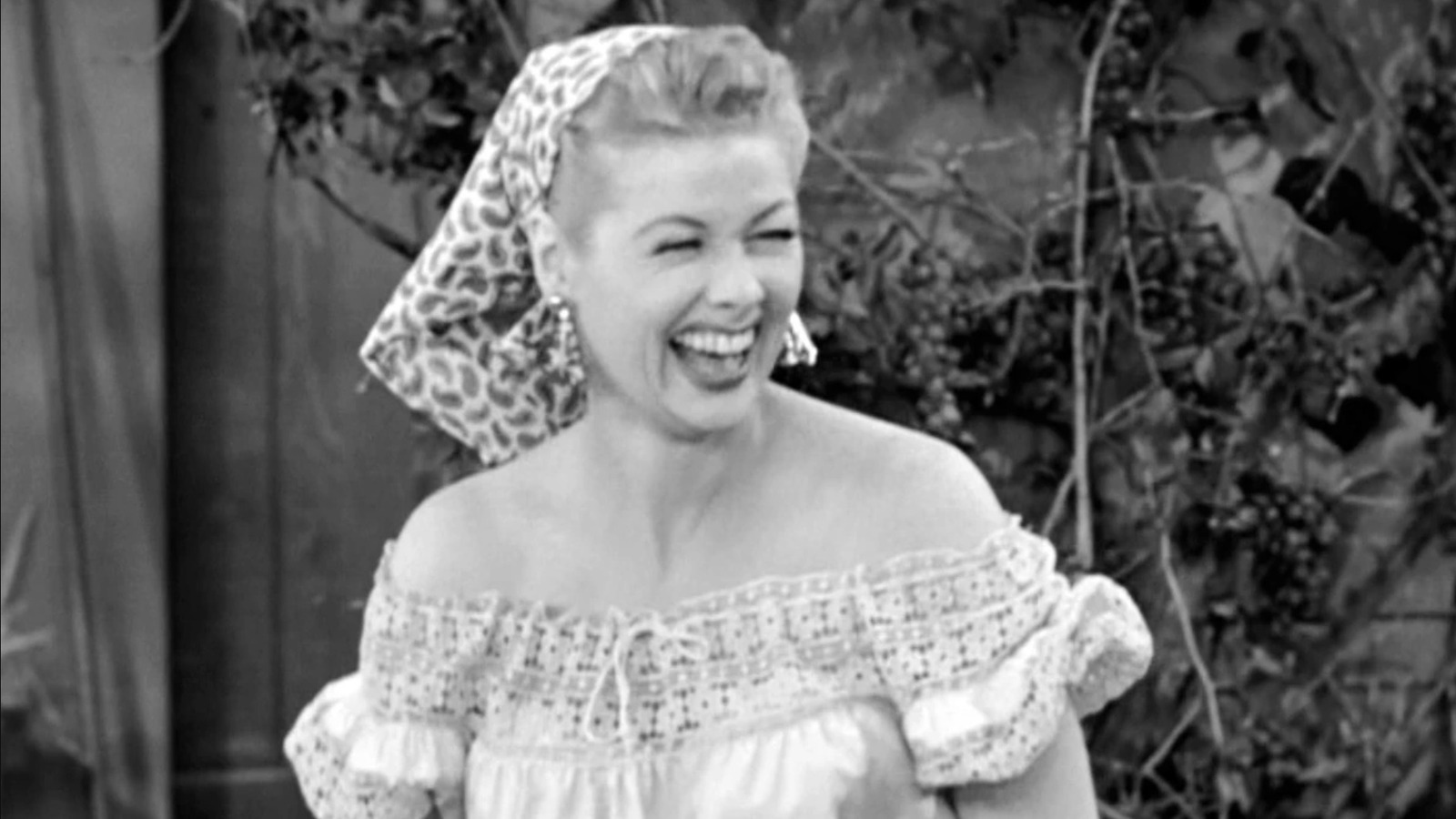
More than 70 years since its debut, I Love Lucy remains one of the most iconic sitcoms in television history. But what makes it so timeless? It’s more than the black-and-white nostalgia or Lucille Ball’s unforgettable face scrunch. It’s the show’s genius ability to find humor in chaos—and heart in absurdity.
Take one of its most famous moments: the “Vitameatavegamin” episode. Lucy, eager to break into showbiz, volunteers to film a TV commercial for a health tonic. She doesn’t realize it’s loaded with alcohol. As take after take unfolds, Lucy gets increasingly tipsy, mispronouncing “Vitameatavegamin” and slurring the ingredients until she collapses into giggles. It’s physical comedy gold—but it’s also a poignant example of her willingness to make herself completely vulnerable for the sake of a laugh.
That was the magic of Lucille Ball: she didn’t just act funny—she was funny, down to her bones. And Desi Arnaz, as Ricky Ricardo, wasn’t just a supporting character; he was her perfect foil. Their chemistry onscreen was electric because it reflected the real, complicated love they shared offscreen.
Episodes like the English pronunciation meltdown (“though, through, cough, bough”) show us another side of the show’s brilliance: its commentary on everyday struggles. Ricky’s frustration with the English language still resonates with anyone who’s ever tried to learn it. But it’s not just played for laughs. There’s empathy in the comedy.

Even as the show delivers gut-busting laughs, it also tackles issues that feel incredibly modern: balancing work and marriage, chasing personal dreams, confronting gender roles. Lucy Ricardo might seem like a housewife desperate for a spotlight, but she’s also a woman pushing back against mid-century norms.
In the final years of Lucille Ball and Desi Arnaz’s real-life marriage, I Love Lucy became both a creative outlet and a last lifeline. They stayed together for the sake of the show, for a while. But behind the scenes, struggles with infidelity, drinking, and personal demons loomed. That they could bring such joy to others even as their own relationship cracked is part of what makes the show’s legacy so bittersweet.
When Lucy said, “I’m not funny. What I am is brave,” she wasn’t being modest. She was telling the truth. And in every pratfall, every ridiculous scheme, every teary phone call to Ricky at the Tropicana, that bravery shines.
That’s why we still love Lucy—and probably always will.